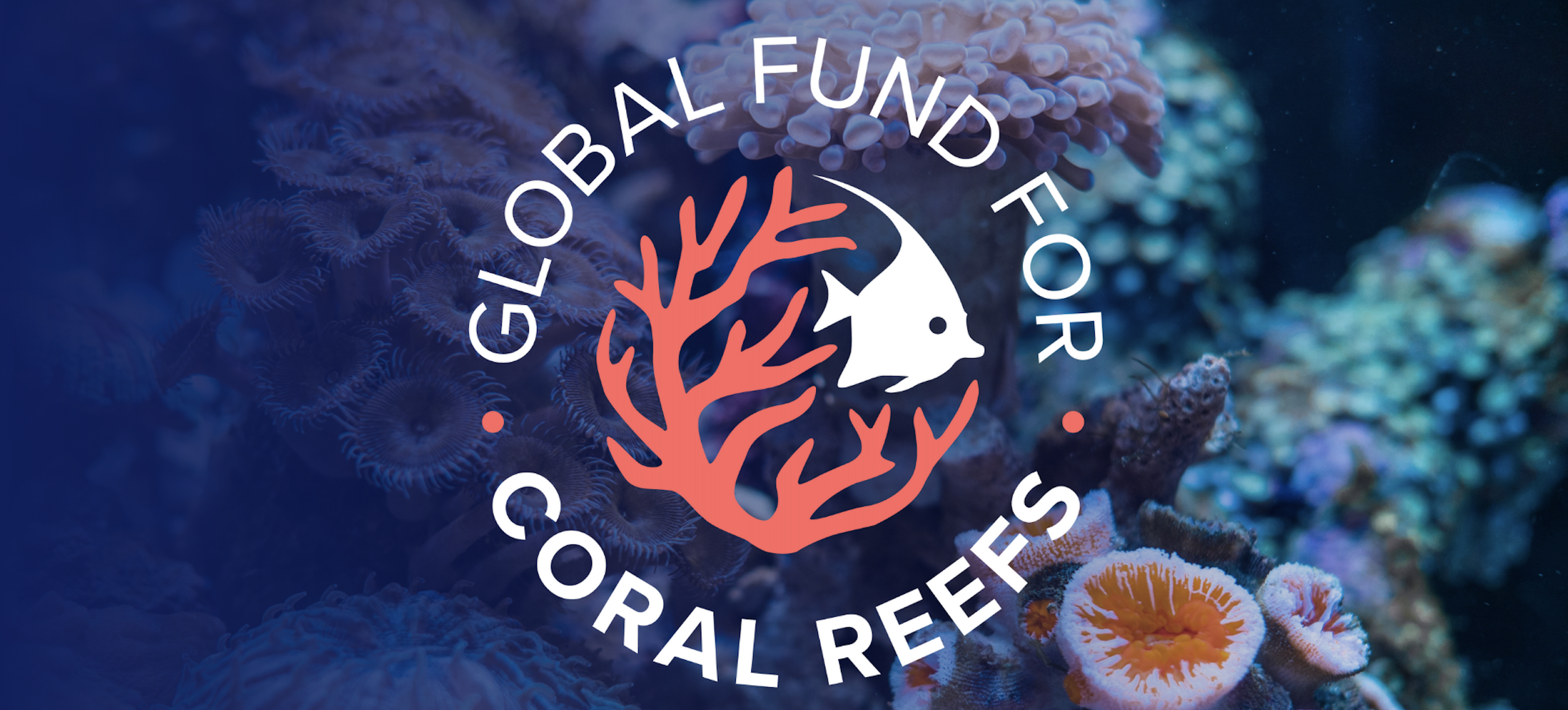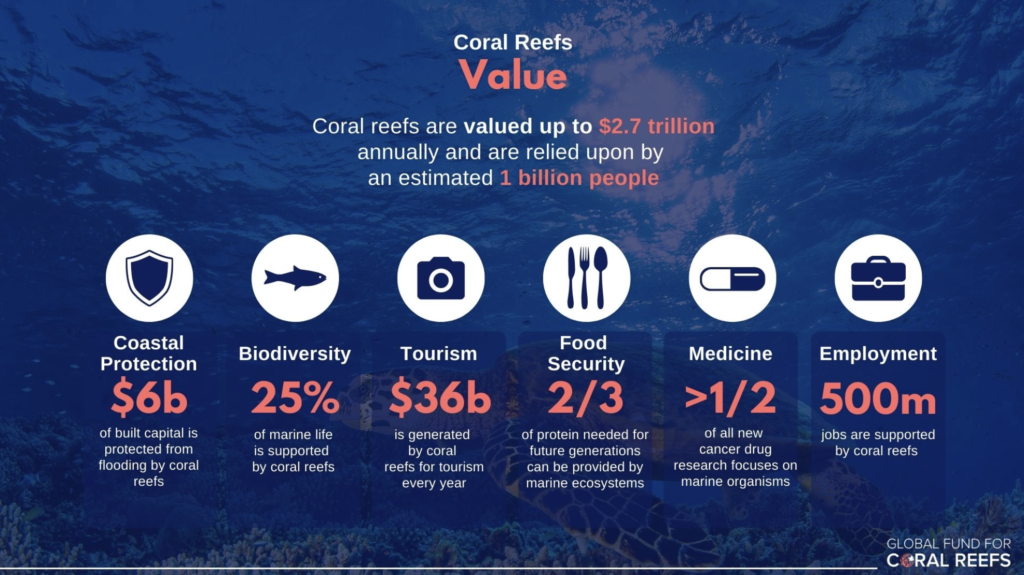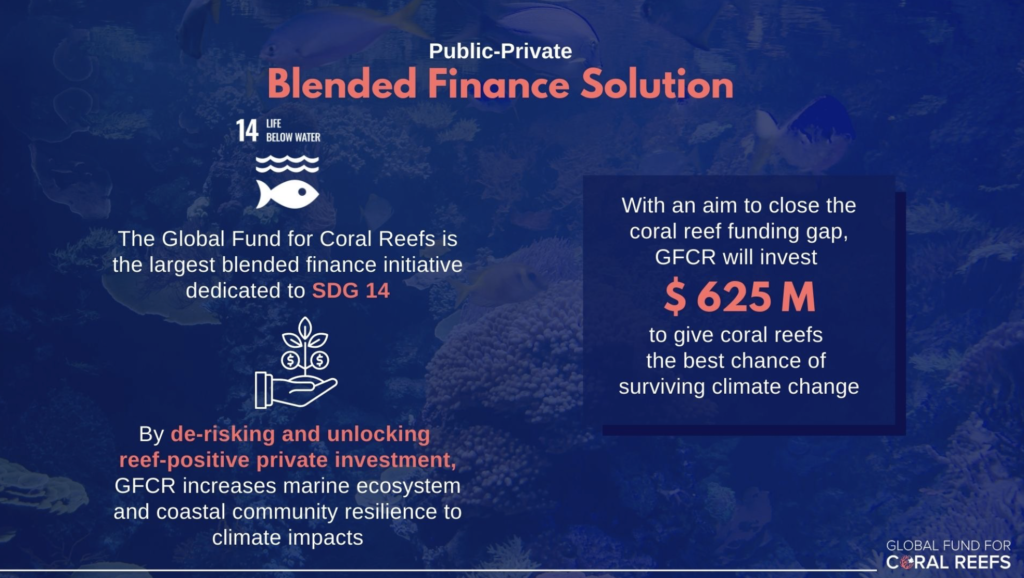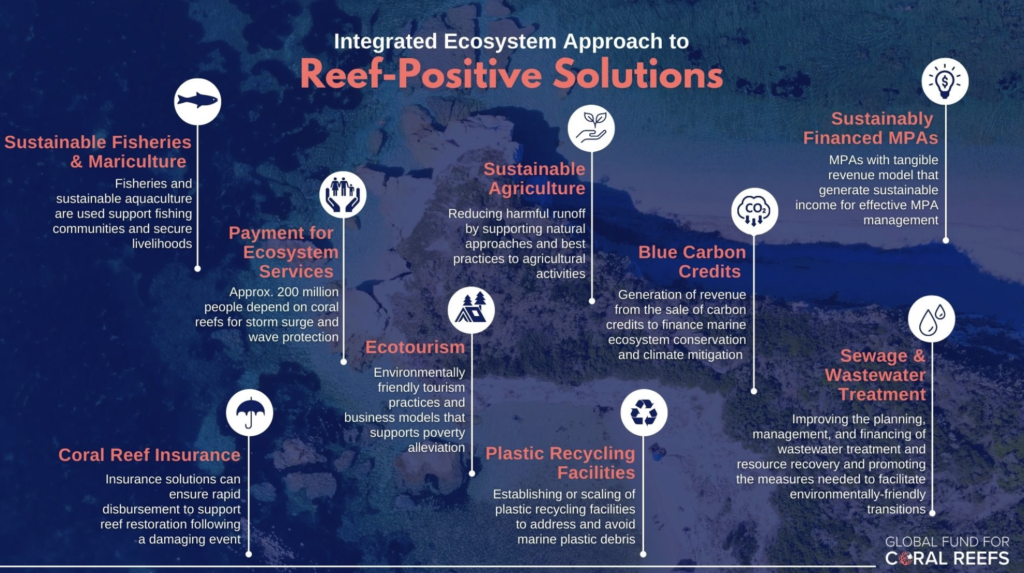Why coral reefs
Coral reefs harbour the highest biodiversity of any ecosystem globally, making them one of the most biologically complex and valuable ecosystems on the planet. Supporting more than one billion people globally, coral reefs provide vital ecosystem services including food security, income from fisheries and tourism, and critical coastal protection from storms and floods. Coral reef and associated ecosystem services are critical to help deliver the nature-dependent United Nations Sustainable Development Goals, especially SDG14 ‘Life Below Water’.
Despite their immense value, coral reefs are among Earth’s most endangered ecosystems. It is estimated that more than half of the world’s coral reefs have disappeared due to climate change and a range of local threats and stressors. Although Earth’s coral reefs have survived for hundreds of millions of years, scientists now predict that reefs may go extinct in our lifetime.
What is The Global Fund for Coral Reefs
The Global Fund for Coral Reefs (GFCR) launched during UNGA75 in September 2020 as the first and only blended finance instrument dedicated to coral reefs globally.
To protect coral reefs from extinction, the GFCR:
– Convenes a global coalition of partners dedicated to bridging the coral reef funding gap;
– Facilitates an innovative ‘Reef-Positive Investment Ecosystem’ with an array of financial tools designed to incubate, de-risk and unlock public and private market-based investment aligned to coral reef climate refugia conservation; and
– Offers an implementation tool and resource mobilisation mechanism for the post-2020 global biodiversity framework.
The GFCR is designed to expand and diversify the SDG14 funding landscape, thereby decreasing long-term marine conservation dependency on grant funding. The initiative’s ‘Investment Ecosystem’ include two core financial vehicles: a Grant Fund – offering grants, concessional loans, guarantees and technical assistance – and an Investment Fund – making equity investments, including traditional private equity, hybrid investments and venture capital. Working collaboratively, the two funds facilitate the efficient use of capital and complementary interventions that systematically address local drivers of reef degradation.
GFCR’s multi-layered blended finance structure not only unlocks additional capital for scaling, but also secures private sector expertise to drive efficiencies, and ensures generation of scalable and replicable reef-positive solutions that are linked to community prosperity.
The GFCR impact
The GFCR has already committed more than US$35 million through grants and concessional loans via programmes that are now supporting the establishment of blue economy investment pipelines across more than 10 countries, expanding to over 25 countries by the end of 2023. Supported reef-positive solutions include sustainable mariculture and agriculture, sustainably financed Marine Protected Areas, sewage and wastewater treatment, plastic recycling facilities, and ecotourism enterprises.
The GFCR is also helping develop nascent sectors, support new business models in achieving profitability, and is piloting innovative restoration technologies and financial instruments, such as coral reef insurance and payments for ecosystem services – so that they can be scaled up globally.
The GFCR in Seychelles – The Ocean’s Resolve
In 2022, Seychelles Conservation and Climate Adaptation Trust (SeyCCAT) has been selected as the leading programme partner (‘convening agent’) for the GFCR in Seychelles under the title of the Ocean’s Resolve. SeyCCAT is responsible for the development of a work program for the Ocean’s Resolve, which includes identification of investment-ready projects, as well as building a pipeline of investable projects for the future.
As the first step in the programme preparation, SeyCCAT has initiated a series of consultations with local policymakers, civil society organizations, scientists and academia, and broader Seychellois community. Inputs from these stakeholders will help inform the GFCR work programme, identify existing financing gaps, and spotlight local circumstances that could facilitate or hinder the GFCR program implementation.
Upon completion of the stakeholder consultations, SeyCCAT will finalize the Ocean’s Resolve programme and submit to GFCR Executive Board for consideration. Pending approval, programme implementation is expected to commence in 2023.





